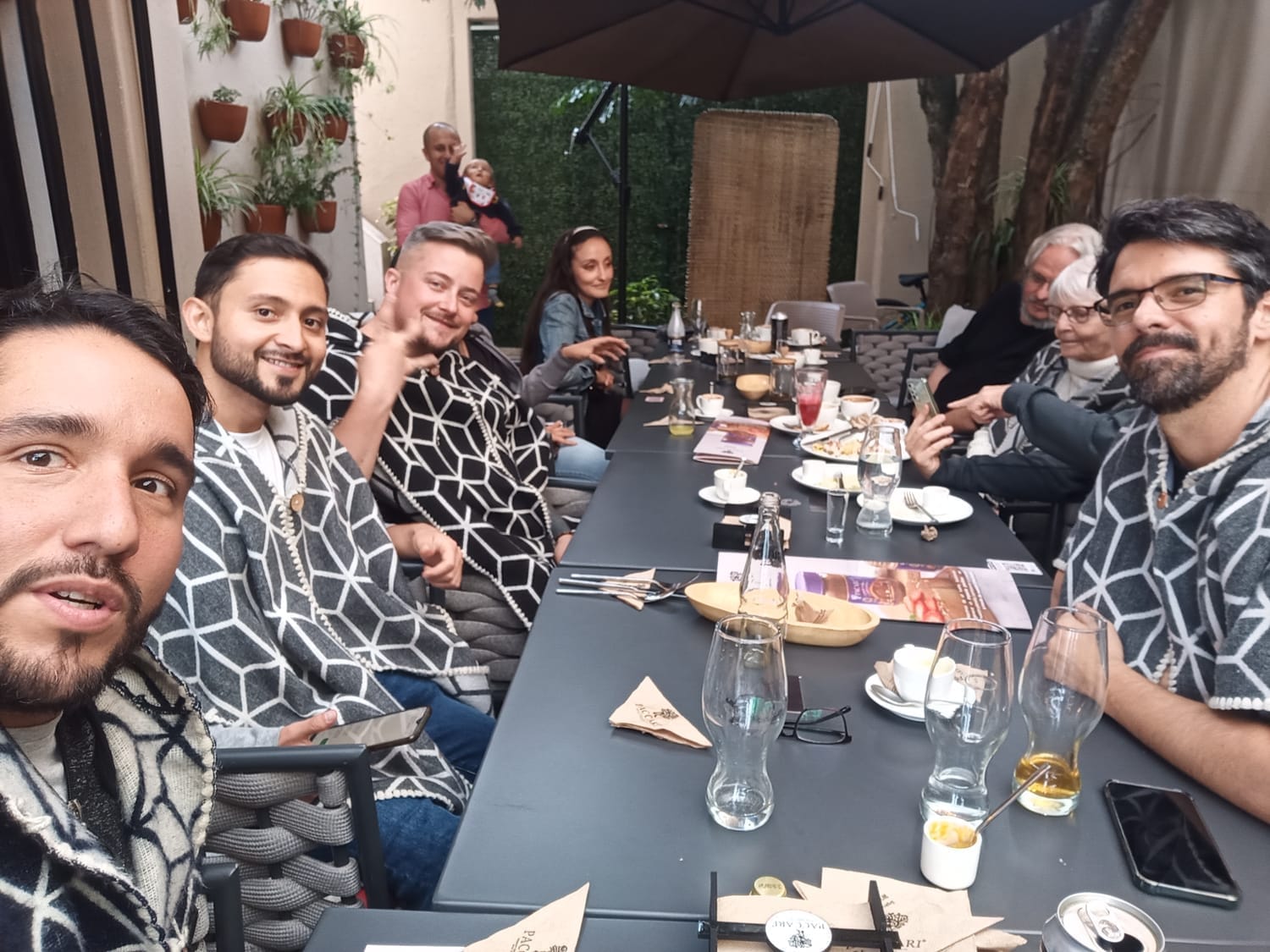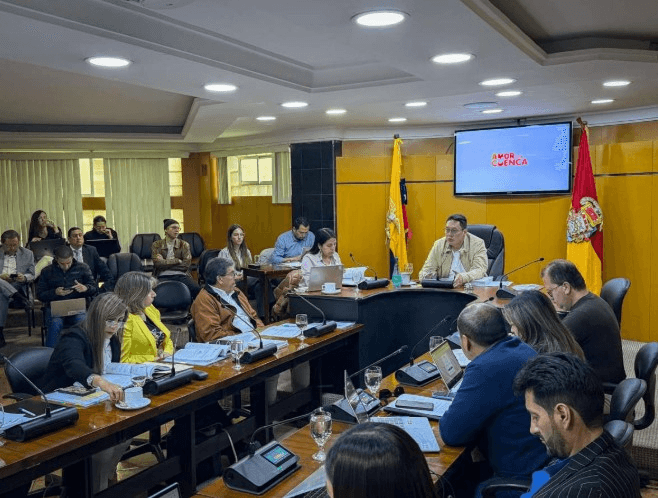Are you looking to test out Cuenca Ecuador for retirement?
Cuenca, Ecuador consistently ranks among the top retirement destinations for those looking beyond the US and Europe. It's easy to see why: with its colonial charm, well-preserved infrastructure, pleasant year-round weather, abundant green spaces, and an appealingly affordable quality of life, Cuenca offers a compelling package of benefits. The city boasts reliable services, familiar amenities by Western standards, and good quality food and water.
However, beneath these undeniable advantages, lie nuances that can significantly impact your experience. Many prospective expats overlook crucial factors that could limit access to these perks or create unexpected challenges due to cultural differences. To truly 'test out' Cuenca for your retirement, you need to look deeper than the surface. This article provides 6 essential tips on what to assess for a successful trial period
1. Distinguish Between Your Arrival Needs and Long-Term Living Needs
Your initial needs upon arriving in Cuenca will likely differ significantly from your requirements once you're fully established. This fundamental difference is why veteran expats consistently advise, 'rent first, buy later.' I'd further extend that to 'rent low-key first, go big later.'
Why this approach?
Neighborhood Nuances: Like any expat hub, Cuenca's neighborhoods each have distinct characteristics, vibes, and practical considerations. What seems appealing for a vacation might not suit daily life.
The 'Settling In' Phase: Your first 6-12 months will be a dynamic period. You'll be navigating visa processes, registering with local authorities, setting up utilities, and familiarizing yourself with the city. This often involves frequent trips to government offices, legal services, and various businesses. Your rental location should prioritize convenience for these initial errands, even if it means a smaller or less 'dreamy' place initially.
When assessing your first rental, consider:
Location: Prioritize proximity to essential services you'll need for settling in.
Furnished vs. Unfurnished: A furnished rental can significantly ease your initial move.
Commitment Level: Avoid long-term leases until you're certain about the neighborhood and your comfort level.
Commuting Time: Factor in travel time for daily errands versus a long-term leisurely commute.
2. Secure Competent Local Facilitators and Advocates
While learning Spanish is invaluable and highly recommended for daily life – from navigating 'tiendas' to engaging in local banter – true fluency doesn't guarantee cultural comprehension. You might confidently converse, yet still miss subtle cultural cues or be unaware of unspoken norms. Locals might inadvertently 'conceal' details by assuming you already know, or because certain specifics are culturally deemed irrelevant.
Resist the urge to 'do it all yourself' or let budget constraints compromise this crucial step. Prioritize finding and hiring a competent local facilitator or advocate. Realizing a major cultural misconception during delicate processes – such as visa applications, renting property or a car, choosing a local bank or navigating medical appointments – can lead to significant headaches, wasted time, or worse.
A skilled facilitator is key because they:
Bridge Cultural Gaps: They understand the local context and unspoken rules.
Prevent Miscommunication: They ensure clarity, especially in official or complex situations.
Save You Time and Stress: By handling intricate processes, they free you up to focus on settling in.
Provide Direct Guidance: They can offer straightforward pros and cons, acting as your candid advisor.
If your budget allows, consider multiple specialists – for example, one for legal/visa matters and another for property or general integration. This investment can prevent major pitfalls and ensure a smoother transition.
3. Plan Your Packing: What to Bring & What to Expect from Online Shopping
While Ecuador offers a broad market for most everyday necessities, not everything is cheaper or even similarly priced compared to North America or Europe. Be aware that imported goods and technology often come with a significantly higher price tag. This means thoughtful pre-planning is essential.
What to Consider Bringing:
Essential Gadgets & Appliances: Make a list of items you truly can't live without. Research their availability and cost in Cuenca.
Work Equipment: If you work remotely or rely on specialized tools, ensure they're either brought with you or can be easily replaced/shipped.
Hobby Supplies: If your hobbies require specific materials (e.g., crafting, specialized sports equipment), research their availability in Cuenca or nationally. Factor in the cost and logistics of acquiring them.
Balance your 'must-brings' with your budget for courier shipping or extra baggage.
Embrace Online Commerce (and Logistics): Ecuador's retail landscape, especially for specific or imported items, is increasingly relying on online platforms and shipping.
Develop Online Shopping Skills: Be prepared to navigate local and international online stores. Some purchases may require arranging separate logistics for shipping to Ecuador, or even using a mail forwarder.
Practice Spanish Online: Many local online platforms will be primarily in Spanish.
Adaptability is Key: If an item is too expensive, too difficult to ship, or simply unavailable, be prepared to adapt your lifestyle or find local alternatives. View this as part of the expat challenge, not a frustration.
4. Strategically Pick Your Battles (and How You Engage in Them)
No place on earth, including Cuenca, offers perfection or will fully satisfy every expectation. The reality of expat life often involves minor frustrations, and some things will inevitably go wrong. Your approach to these inevitable challenges is crucial to your long-term contentment. Learning when and how to engage in disagreements can significantly reduce stress and prevent minor issues from becoming major setbacks.
a. Language Barriers and Miscommunication
A common source of frustration stems from language barriers or imperfect English, even when service providers attempt to communicate. Remember, you are in their country. If a miscommunication occurs and it's not a critical issue (see below), consider if it's truly worth the effort to rectify. Often, it's wiser to accept the outcome, learn the lesson, and move on. For crucial interactions, or if you anticipate complexity, this reinforces the need for a competent translator or facilitator (as discussed in Tip #2). Their assistance can preempt most misunderstandings.
b. Differing Service Standards and Protocols
You will encounter service standards and protocols that differ from what you're accustomed to in the US or Europe. Before escalating a concern, ask yourself these crucial questions:
Does this pose a hazard to physical wellbeing?
Does it represent a serious breach of initially discussed terms and conditions?
Does it jeopardize significant assets (e.g., property, savings)?
Does it carry legal consequences for you?
Does it result in a financial loss of more than a negligible amount (e.g., more than $20-30 USD)?
If the answer to these questions is 'no,' it's often best to accept the outcome, learn from the experience, and adjust your expectations or approach for next time. This isn't about allowing exploitation, but rather about discerning when to invest your energy. Document what happened so you can establish clearer expectations or choose alternative services in the future.
c. Interpersonal Disagreements with Locals
The same principles apply to minor annoyances or disagreements with acquaintances, strangers, or neighbors. Before engaging in a quarrel, apply the same 'litmus test' questions from the previous point. Unless the issue is significant, avoid expending your emotional energy. This is especially true if you are not fluent in Spanish or are unwilling to engage a third-party advocate to mediate. Choose your peace over petty disputes.
Should you decide a quarrel absolutely needs to be addressed, ensure you have a clear strategy. Proactively understand and rehearse 'how should I go about this?' scenarios, even before issues arise.
d. Case Study: Addressing Persistent Noise (e.g., Barking Dogs)
"A common neighborhood challenge in Cuenca, for instance, is the prevalence of untrained dogs that may bark for extended periods. If you decide this is an issue you must address, approach it strategically:
Start with Your Landlord (if applicable): Initiate the conversation from a place of curiosity. Frame it as: 'I was wondering if there's a usual way to handle something like this,' rather than a direct complaint. Avoid signaling an aggressive stance, as this can make people hesitant to offer help or information.
Explore Community Structures: If direct landlord communication isn't an option or doesn't yield results, investigate if your building has a condominium association or if your neighborhood has any formal or informal community organizations that address such issues.
Consult Neighbors (Strategically): Gently inquire with other neighbors about their experiences. Ask if they've tried to resolve the issue in the past. If they seem unbothered, ask 'why?' This helps you understand local tolerance levels and potential cultural norms around noise.
Due Diligence & Decision: After gathering information, assess whether you feel equipped to proceed on your own, or if this is a situation where an advocate or specialized professional would be invaluable.
Navigating these situations wisely can significantly impact your daily peace of mind and overall satisfaction in your new home."
5. Cultivate Intentional Friendships with Shared Purpose

Meaningful friendships are undoubtedly key to thriving long-term in any new location, especially as an expat. However, if you're not intentional about the friendships you cultivate, you might find that your social connections don't fully support your new life. Loose or superficial friendships can lead to several challenges:
a. Friends Who Align with Your Lifestyle and Goals
Without shared purpose, your friends may simply be on very different pages from you. This can be problematic because you need feedback and support relevant to your personal situation and aspirations. For instance:
For the Adventurer: If your Cuenca expat life involves exploring Ecuadorian wilderness, national parks, or mountains, cultivate friendships with those who can offer suggestions, guidance on avoiding perils, insights into unique opportunities, and help with legalities and logistics.
For the Homesteader/Investor: If you plan to buy property for agriculture or other productive activities, seek out friends who can provide key suggestions on property value, soil conditions, water sources, and other technical tips.
The right network provides invaluable, relevant feedback and support.
b. Friends Who Offer Support During Dire Moments
While we all hope to avoid tough times, unforeseen challenges can arise. As an expat, facing a traffic accident, a significant problem with local authorities, or a medical emergency in a foreign country is uniquely daunting. During such critical moments, you need friends who are not only willing but also able to step up.
Seek out individuals who you can trust to:
Show up for emergencies.
Act as a point of contact when you're incapacitated.
Handle crucial decisions or business on your behalf if circumstances demand a third party.
This type of reliable support network is invaluable for peace of mind.
c. Friends for Active Engagement and Shared Interests
While 'coffee and couch friends' are wonderful for relaxed conversations, if your expat life involves more than just casual chats, you'll need connections that facilitate your passions. You might find it challenging to pursue interesting or adventurous activities if you're the only one enthusiastic about them.
Actively seek out communities and groups of people who genuinely share your hobbies, interests, or purpose. This could mean joining:
A spiritual or religious community.
A volunteer group.
A hiking or cycling club.
A book club or art collective.
Engaging with intentional people who actively 'make the most of their day' will enrich your experience and ensure you have companions for the activities that truly matter to you.
6. Invest Time and Effort in Understanding Local Legalities
Navigating the legal landscape in a new country can be complex. Even if you meticulously avoid activities typically deemed criminal, there are numerous ways to inadvertently find yourself embroiled in a legal issue in Ecuador. This can happen simply by performing an act you assumed was legal, or by committing an oversight you didn't know carried legal consequences.
Consider these common scenarios:
Labor Relations: In Ecuador, labor laws are robust and can be intricate. If you frequently contract a third party for services (e.g., a cleaner, gardener, or assistant), you might inadvertently create an employer-employee relationship, obligating you to acknowledge full labor rights, benefits, and potentially severance.
Misleading Accusations: Unfortunately, certain consistent circumstances or misunderstandings can be leveraged to support misleading accusations against you, sometimes as a tactic to gain a financial advantage. Understanding local social dynamics is key to avoiding such situations.
Protecting Your Rights: You may also find yourself needing to assert your rights regarding personal injury or damage to your property, whether accidental or intentional. Knowing how to navigate these situations effectively, without immediately resorting to a full-fledged court trial, is critical.
To proactively protect yourself, make it a priority to:
Understand Local Regulations: Familiarize yourself with your town hall and local council regulations. These often govern aspects like noise, property lines, and can be invaluable for resolving neighbor disputes.
Business Ventures: If you plan to start or engage in any business, even small-scale, delve into Ecuador's commercial code, tax laws, and regulations specific to your industry.
Outdoor Activities: For the adventurous, learn about tourism laws, the national parks code, and specific rules for any parks or protected areas you plan to frequent. Ignorance of these rules can lead to fines or more serious legal trouble.
While researching these legalities requires an investment of your time and effort, it is a crucial safeguard. This proactive knowledge can help you avoid an immense amount of stress, financial loss, and potential legal complications, ensuring a much smoother and more secure expat experience.

Congratulations!
You've invested time in understanding the nuanced realities of Cuenca, from adapting your living situation and navigating cultural differences to securing legal clarity and building vital support networks. These insights are just a glimpse into the depth of knowledge available to make your expat journey not just possible, but truly prosperous.

Javier V.
10-year immigrant in Cuenca, Ecuador
Member of multiple local business circles and communities, including many English-speaking expat groups
Unlock More Essential Expat Insights
Don't navigate the exciting, yet often complex, world of expat life in Cuenca alone. Our newsletter is your direct line to even more powerful insights on the specific pain points we've discussed, offering practical solutions and strategies gleaned from years of on-the-ground experience.
Beyond advice, we'll also share trusted recommendations for service providers – from reliable facilitators and legal experts to property managers and community groups – who consistently go the extra mile to support expats like you. Think of it as your curated list of allies dedicated to your successful transition and long-term happiness in Ecuador.






